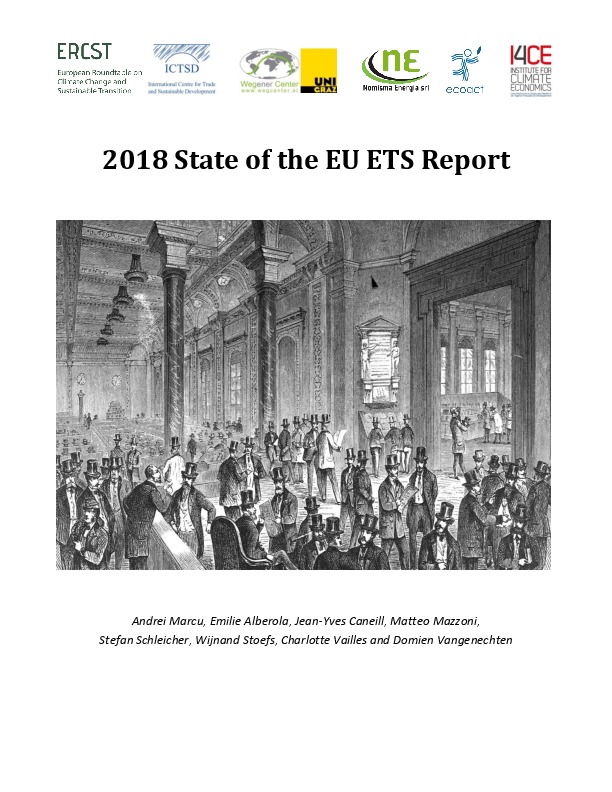2018 State of the EU ETS report
I4CE publishes the 2018 “State of the EU ETS” report, in partnership with ICTSD/ERCST, the University of Graz, Nomisma Energia and Ecoact.
The report focuses on 5 key areas:
- Relevant Policy and Governance issues, including Phase 4 review
- Environmental delivery
- Economic efficiency and delivery, including protection against carbon leakage
- Market functioning
- Making the EU ETS ‘fit for purpose’: key areas to pay attention to in the future
The “2018 State of the EU ETS” Report aims to provide an independent contribution to the policy debate, which is needed to ensure that the EU ETS is “fit for purpose”. This report discusses the current state of play in the EU ETS, analysing whether the system is performing and delivering, and discusses how the recently concluded Phase 4 review could affect its functioning from 2020 onwards.

